An Extensively Exhaustive Analysis of Dragon Quest XI’s Encounter Mechanics with an Emphasis on Efficiency
~ intro ~ I ~ II ~ III ~ IV ~
~ return ~
This one will probably be perpetually unfinished even when it's "finished," because god are there so many mechanics and formulas and skills and how each character's synergizes with everyone else's and enemies and the entire progression of it all across a 50-to-130-hour-game to cover. The notes I have only really deal with the main cast and their toolkits, and even with perfect clarification that conveys exactly what I want to say, I wouldn't ever be able to truly convey a sense of how it all meshes together in text. Go play the game for yourself and come back, I guess.
"It's Tolkien through a glass darkly and, God, if that weren't bad enough, Tolkien through a glass darkly written by computer science nerds for whom English is a third language. After Basic and C++."
"That's very funny," I say. "But, that's precisely what makes them culturally endearing or, at very least, interesting. It's art. Made by mathematicians."
She ignores me. "Not only that, but you're in constant fear of these random battles. It's like there's someone sitting behind you while you're playing, whacking you round the head every 30 seconds or so. You can't see it coming, so you're continuously on edge. Even despite the fact the battles rarely hold any sort of challenge. You hit the same set of buttons a hundred times over, and the machine spits out small change for the effort.
"You say videogames are beautiful, expansive puzzles. I say: bullshit. You may as well be working on a factory assembly line; the challenge is exactly the same: one of perseverance, not intelligence."
"Right, but there's more to it than repetitious combat," I say.
"What, like talking to townsfolk? Jab the talking doll in the stomach with the X button and have it spit out its solitary line of dialogue about the earth's lifeforce or some other hotchpotch pseudo-philosophical twaddle? 'Hey! Would it be OK if you fetched me my lost straw doll from a town on the OTHER SIDE OF THE OCEAN?!' Or: 'Oh-God-Have-You-Heard-The-Rumours-About-This-Evil-Wizard-Who's-Stealing-All-The-Crystals-In-The-World-And-Who-Will-Save-Us?' Yeah, super enriching, Simon."
"No. I mean. Yes. You're sort of exactly right. But you're also sort of missing the point. Yes, games are power fantasies. But more than that, they show us the way things are supposed to be..."
"What?" She puts down the controller and, for the first time in the conversation, listens.
"I mean, deep down they function how we want the real world to function, right? There's a set of rules and, if I follow them and do the right things in the right order, success is kind of guaranteed. That's true of all videogames, but in JRPGs there's the story too. They have a set trajectory that leads me out of the bastard confusion of adolescence towards an endgame of maturity and identity and, er, status I guess. And all you need to do to experience that is follow the breadcrumb trail and keep turning the cogs..."
"You're mixing your metaphors," she says, smiling. "You definitely play too many of these things. The bad writing's rubbing off on you."
It's my turn to ignore her. "Because, while the battles may be random, the war's outcome is always predestined," I continue. "You're predestined to succeed. Just so long as you keep going. And jeez, that may be escapism or a gross oversimplification of the reality we live in, but isn't that sense of... of justice the yearning of every human being? Are not JRPGs maps of perfect worlds where everything behaves how you expect it to."
"Um..."
"Because, when your life turns to shit and people let you down, or when you study hard but still flunk your exams regardless, or when you work your ass off and your boss doesn't notice.... Or, or even if he does but is too preoccupied with his own quests to congratulate you... I mean, that's sort of a broken system. It certainly feels that way. That's just not how things should be. JRPGs counter all that disappointment and unfairness with dependable justice. They reward you for your efforts with empirical, unflinching fairness. Work hard and you level up. Take the path that's opened to you and persevere with it and you can save the world. You can fix the things that break...
"Simon..."
"No, wait. They give you that power, sure. But more than that, they give you consistency. This world, and the people in it, do not. JRPGs are, well, er, I guess they're sort of like heaven in that regard. Except with, like, improbably large swords and nuclear-grade hair gel."
—Simon Parkin, “Maps”
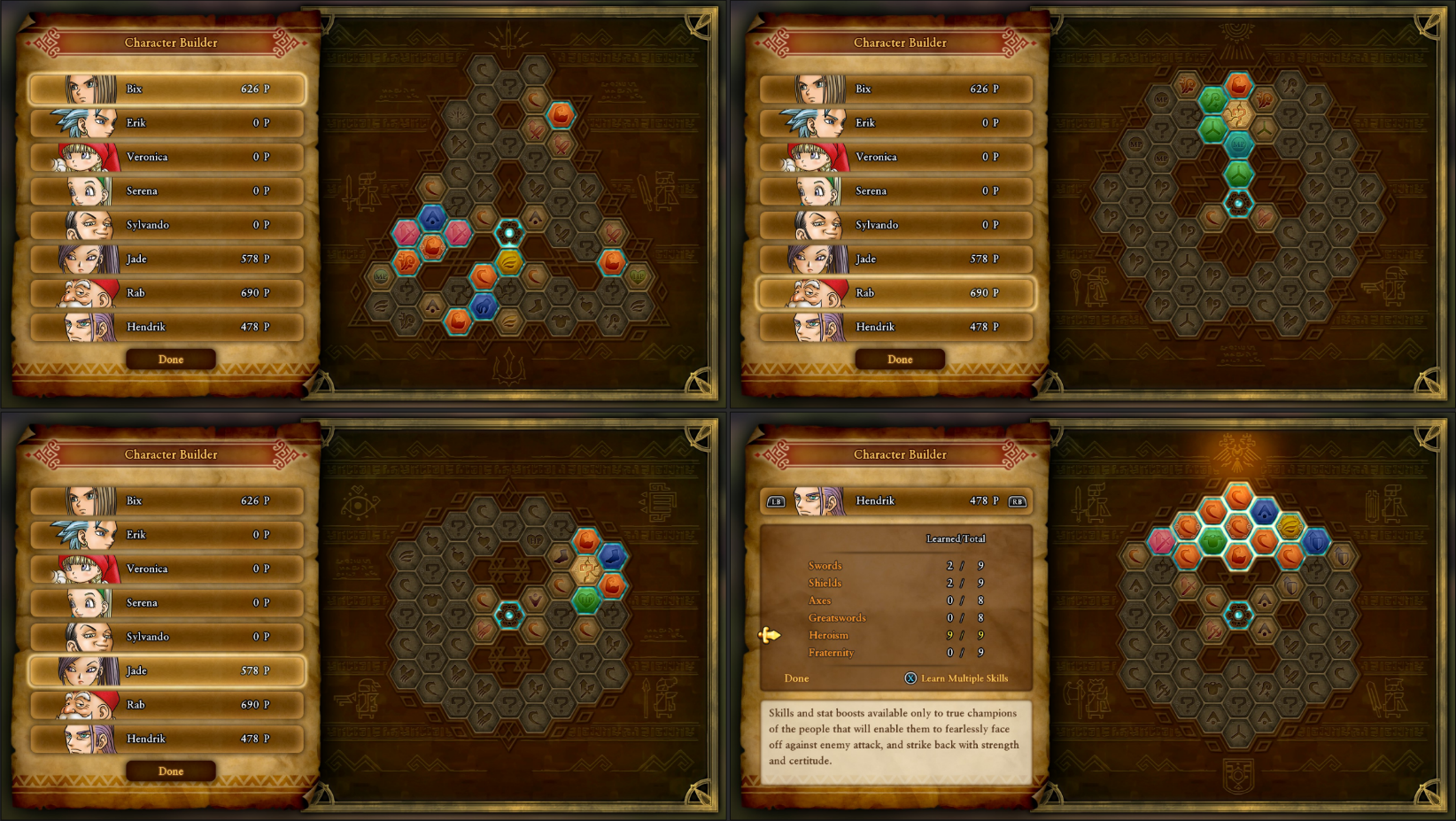
every strength bonus that can be unlocked in every skill tree they're available in, along with Hendrik's filled out Heroism section.
- big character battle design analysis intro (ordered by way of how I build characters over a playthrough)
- based around my experience, since in an RPG with the ridiculously-sized toolkit this game gives you, there is no such thing as classifying a universal experience/difficulty/whatever
- re: Tim Rogers’ ideas about mechanical bonds: kind of a mixed bag, but everyone is basically two sides of four different coins (probably)
- what DQXI does to modernize its mechanics?
stronger monsters is in a way an entirely different videogame[nope, no shopping is the different game, actually], margin of error compared to normal mode is much tinier, and the MP economy/investment needed to kill stuff is doubled- most equipment bump ups are pretty negligible in direct sequence
- 3 “research” playthroughs [each differentiated by names of the player character, a couple of which had been used before]: Amethy, Charo II, and Lapis
- Amethy I’s restrictions were stronger monsters + reduced exp + party wipe if protagonist perishes (mostly there to prioritize the left side of Hero’s skill tree and see if the shield made much of a difference in survivability, which it did)
- Charo II’s restrictions were just stronger monsters + reduced exp
- very backwards, especially considering the hero was using 2H swords, but it basically made the case for them being busted even more apparent (the “blunt objects” run?), tried to also do things out of order as much as was possible (which isn’t much, the only thing you can really do out of the intended order is Act II Phnom Nonh before Angri-La and Hotto before the rest, both of which can be tough w/o extra members, which is probably why Tatsunaga is fought twice [first one presumably as a way for you to gauge if you can really beat it, if not you'll hopefully go somewhere else to grind and/or stumble across another plot event in the process])
- inadvertently built the entire party around aggression
- was also kind of bad for remembering things since I blew through Act I with no voice acting enabled
- Lapis’s restrictions were just reduced exp, but with self-imposed restrictions of A) party members are controlled by the AI except for bosses B) “canon” weapons only (the ones used in the opening movie) C) no head or body armor
- trying to play similarly to your average player/Youtuber? [did not finish this one, barely got past Lonalulu before getting bored and was already fatigued of the game, next one will use this name and likely have stronger monsters again]
- could go extremely granular (in-depth analysis of NPC dialogue)[don't really remember what this was for...might be an attempt to measure the ratio of NPC types a la the Reverse Design series of books...this would actually take an actual stupid amount of time though (to do the whole game, anyway...I'm probably going to end up organizing a bunch of town NPCs for fic writing purposes...god help me...)]
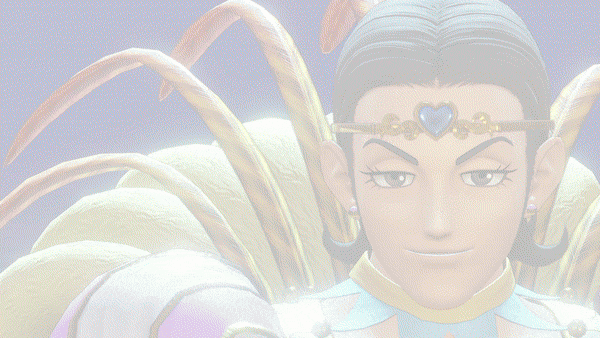
Sylvando (good support, okay damage)
and
Hendrik (good damage, okay support)
[wtf did I mean here??? both of these characters can practically carry the party with their support]
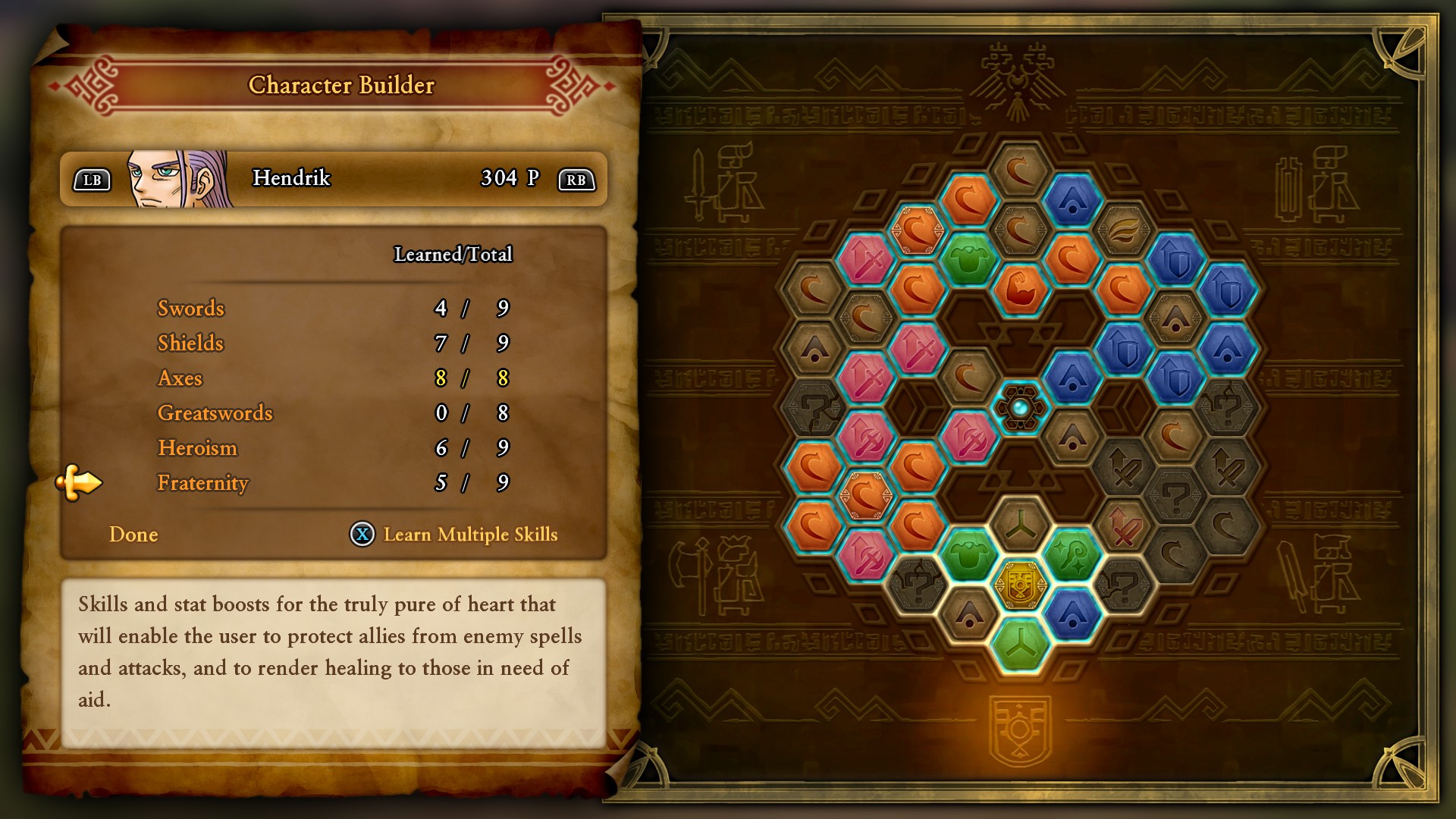
- Hendrik is the undisputed GOAT; can attack pretty dang well, but his defensive and support capabilities are good enough that you don’t really need to much to after the band’s back together (and plus, the best attacker in the game is already in the party once he joins up anyway)
- intro to thesis that the weapons characters use in cutscenes and promo materials are not the weapons you should use for some characters
- Hendrik joins up with 100-something skill points, giving freedom to make a solid foundation in any tree, but there’s two that have the most use to a knowledgeable player: Axes and Shields
- tried to have him use greatswords and swords initially in both Amethy S and Charo PC’s playthroughs respectively, but switched back pretty quickly into things (no shield screws with how I like to use him and Avarith is cumbersome if you don’t have Scrap Mettle or a Giga skill or just Rab)
- Axes are the immediately useful middle ground between the others
- BUT Hendrik’s dedicated tree of defensive/support options getting relegated to an optional postgame quest while his “Heroism” category [this is called えいゆう or 英雄 in the original Japanese, so no two ways around it, this is very much the name] being comprised of almost entirely attacking options is all you need to know about what DQXI thinks heroism should be[this is probably giving up too much of the game too early here, but this gets to the heart of this whole enterprise: Dragon Quest XI's vision of heroism as conventionally conveyed by its mechanics is, in fact, not keeping your homies safe. It is not healing your homies' wounds. It is not taking measures to keep your homies out of danger. It is not putting your life on the line to take a
bulletdesperate attack for your homies. What is Dragon Quest XI's vision of heroism? Go look at the hero's section and tell me.]
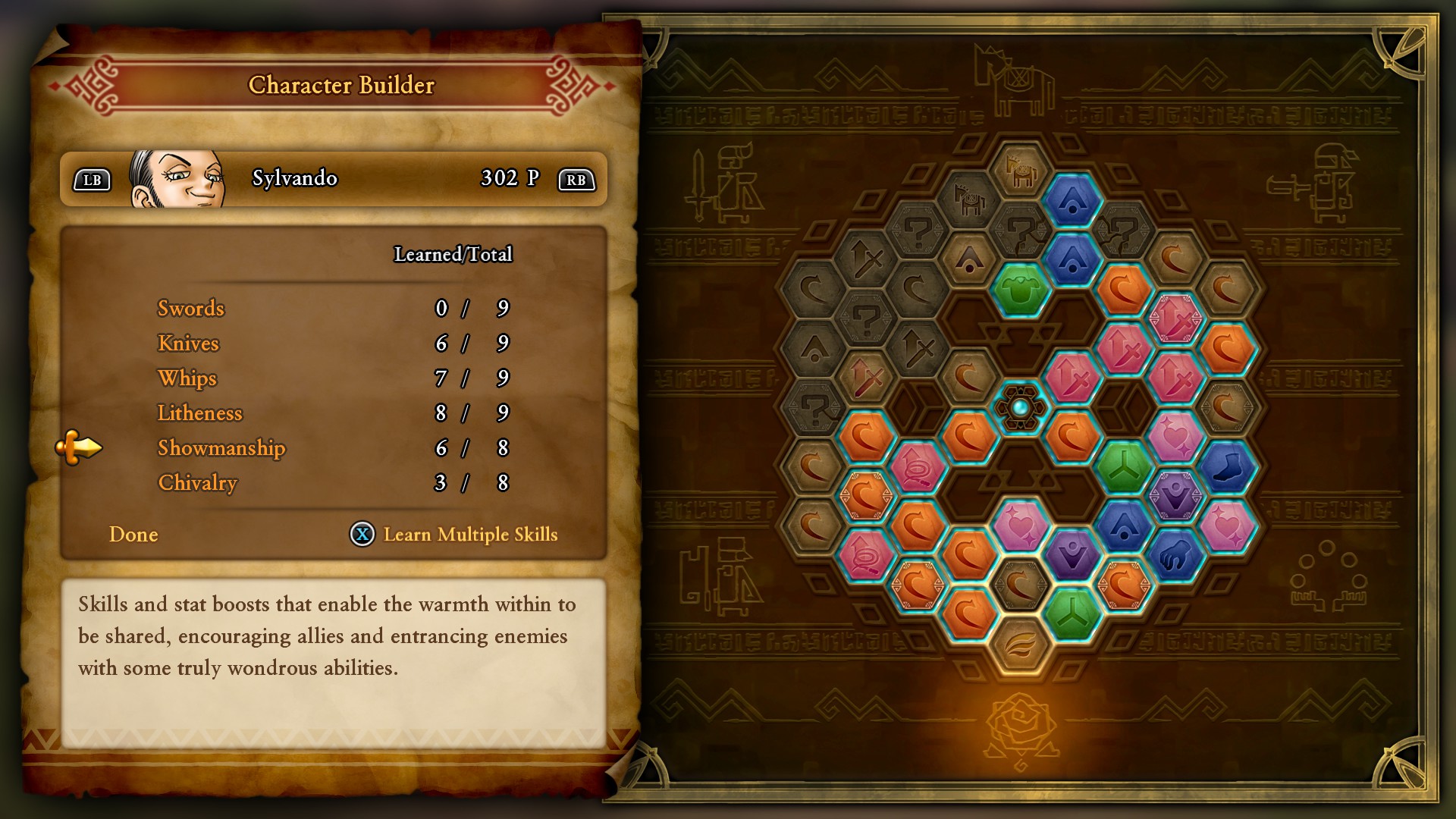
- Sylvando is the prime enabler for the party
- the battle planners of this game do not want you to use swords with this character, or even be much of a damage dealer
- first bits @ Gallopolis + equipment screen expressions
- yeah, he has higher (natural) strength growth than the hero for most of the game, meaning he’s technically a better knife user than Erik initially, but even if you did build him as an attacker, there’s almost always something else he could be doing for more benefit in the long run (and his overall attack bonuses are very negligible in the long run)
- heck, the further along you get in the game, the less he needs a weapon; even disregarding that everyone else has better attacking options, improving stats and getting utility to help out everyone else is what really makes him shine [no, seriously, not even joking, once you unlock Ladies First he literally does not need to attack again]
though still whyyyyyy’d they give him this dumb instant death skill instead of Blade Cascaaaadeee when that uses juggling tooooooo (in a cutscene too!) c’mon brooooooo[Have a Ball is functionally the same skill, but without DQVIII's tension it's quite underwhelming]- Oomph is essential early on to make sure physical attackers can put reasonable dents into enemy HP, but since Sylv’s MP is rather limited you’ve gotta make that choice wisely while rationing it out
- Octagonia is the place/test where the game basically screams at the top of its lungs “do you know how respec works? then get Hustle Dance idiot” [really the entire game up to Act I Octagonia on stronger monsters is what culls the weak from the strong, but the Caverns in particular is rough because all the undead enemies naturally resist most types of damage and unless you grind beforehand you probably won't have the best tool for dealing with them, which is Veronica's Sizzle spell]
[open for a long explanation]
First things first, if you haven't played the game up to Act I Gallopolis, watch the climax of Sylvando's introductory arc featuring his incorrect use of a thrusting sword (skip to 18:37):
So, a straightforward introduction to your typical suave swashbuckler who will later be exposed as not particularly secure in their skill, right? Offer some choice wisdom, brush off witnesses' heightened expectations with some humble clarification before blithely walking off into the sunset, leaving the audience to wonder why they engage in such self-deprecation.
Most folks who have seen this trope elsewhere will probably recognize it for what it is from this scene alone (wow wouldn't it be neat if he really was a knight), but there's an extra detail driving things home at the end, one that isn't difficult to miss: Sylvando stops smiling once he turns away from Faris.
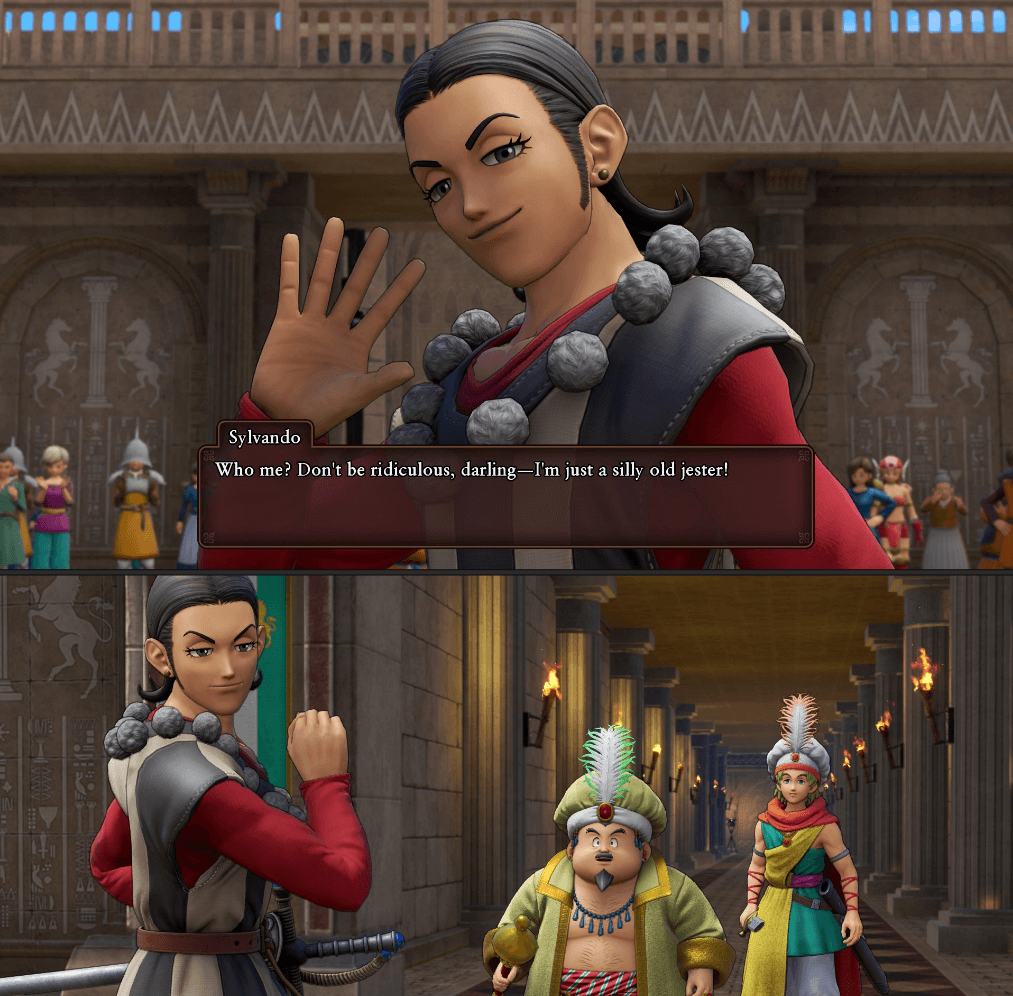
It's as if he's immediately, reflexively disappointed from showing off in this specific way, like when you accidentally reveal to judgemental onlookers how obsessed you are or were about a topic nobody else knows or cares about (ha ha). A few minutes later, Sylvando joins the party as a fully-fledged character in battle, allowing the player to indulge in watching his sword skills as much as they wish.
When you first open his part of the equipment screen, though, you're greeted with that same disappointment with his default armament:
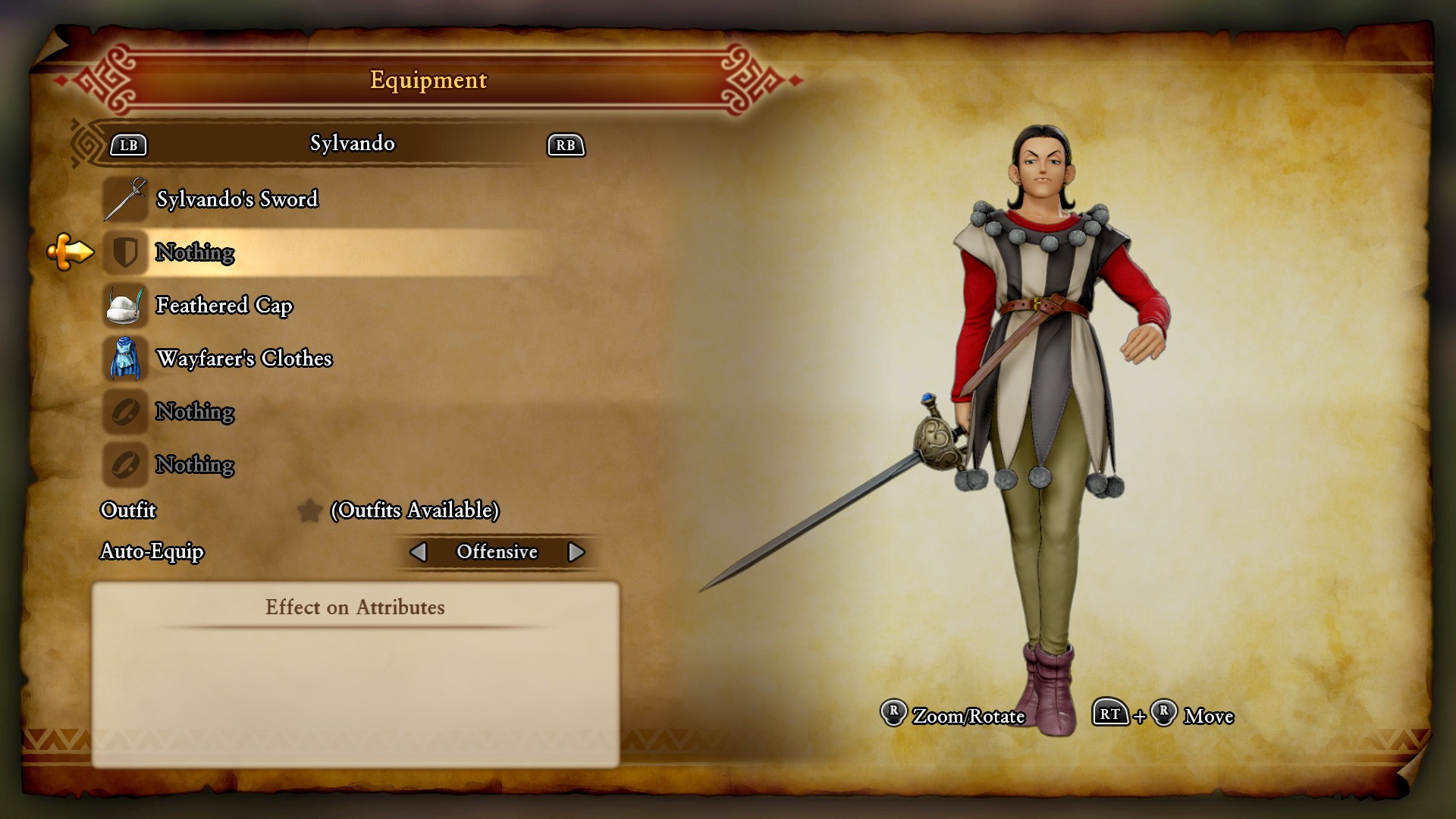
Like everyone else, Sylv comes with other weapons in his inventory, but he still isn't satisfied if you equip him with a knife, or toss him a shield with either or for good measure:
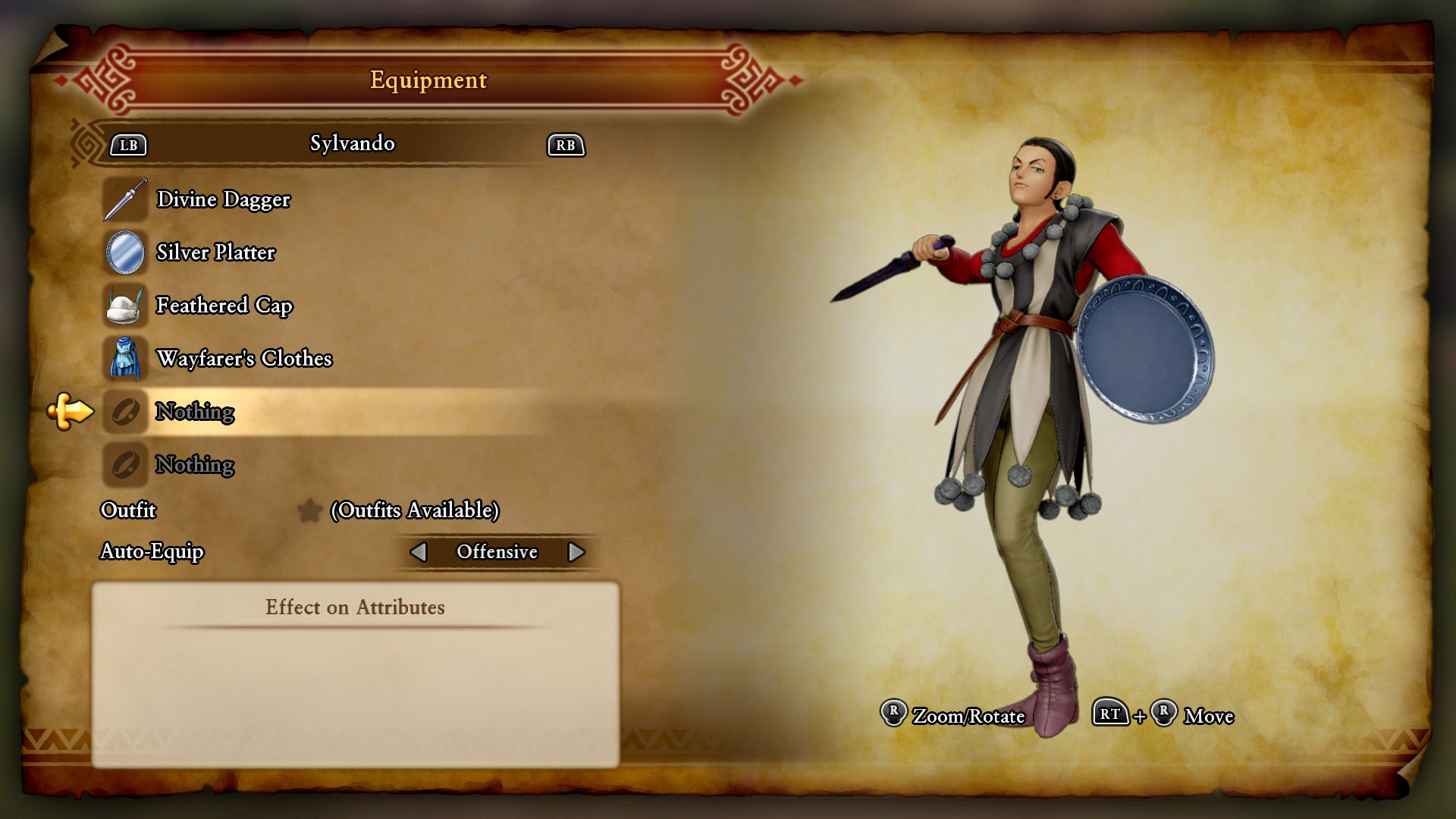
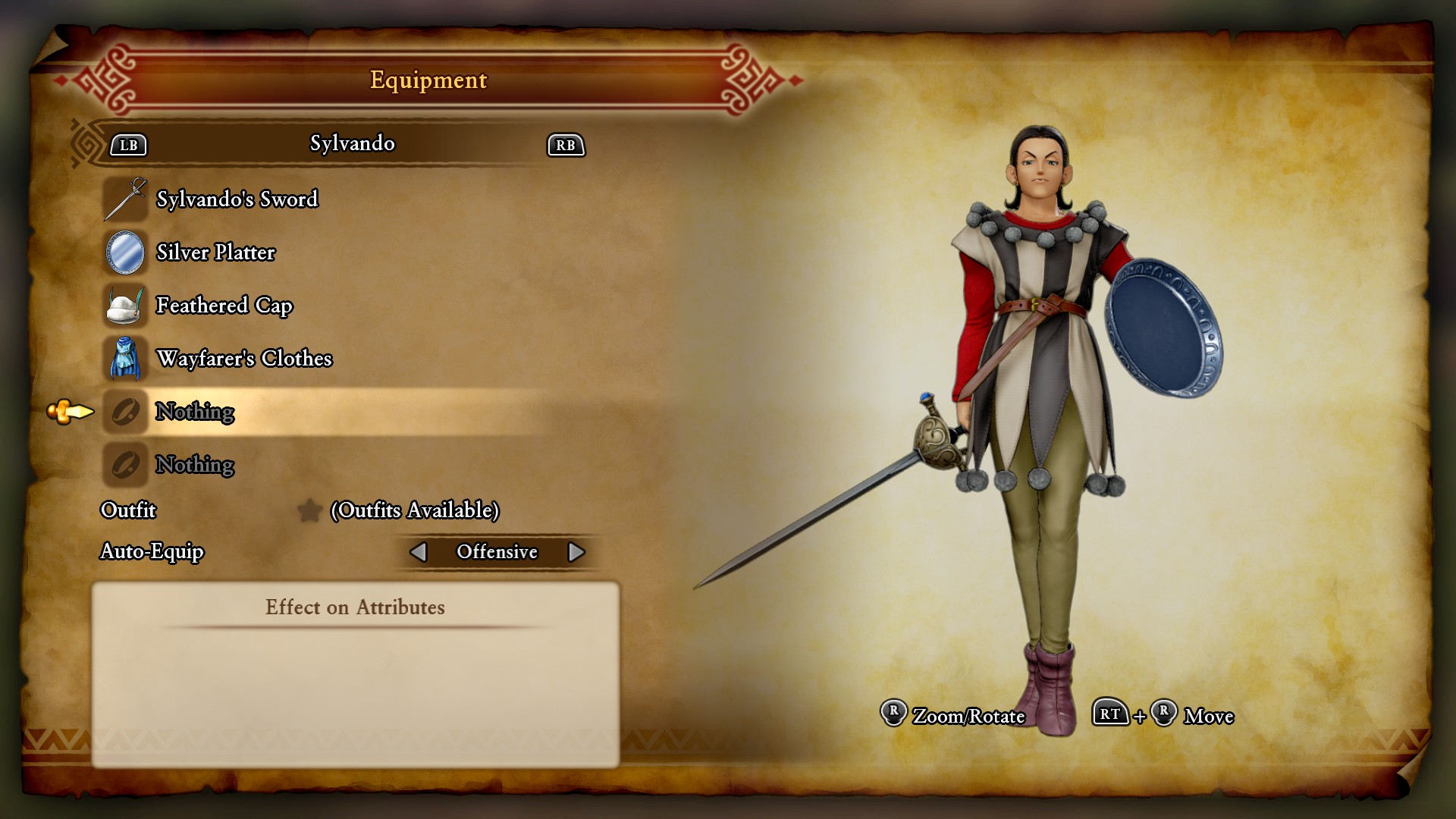
Even later on, if you decide to unlock dual wielding for him and give him two swords (this is a very big if, please don't waste your points on this), Sylv still won't be happy with it.
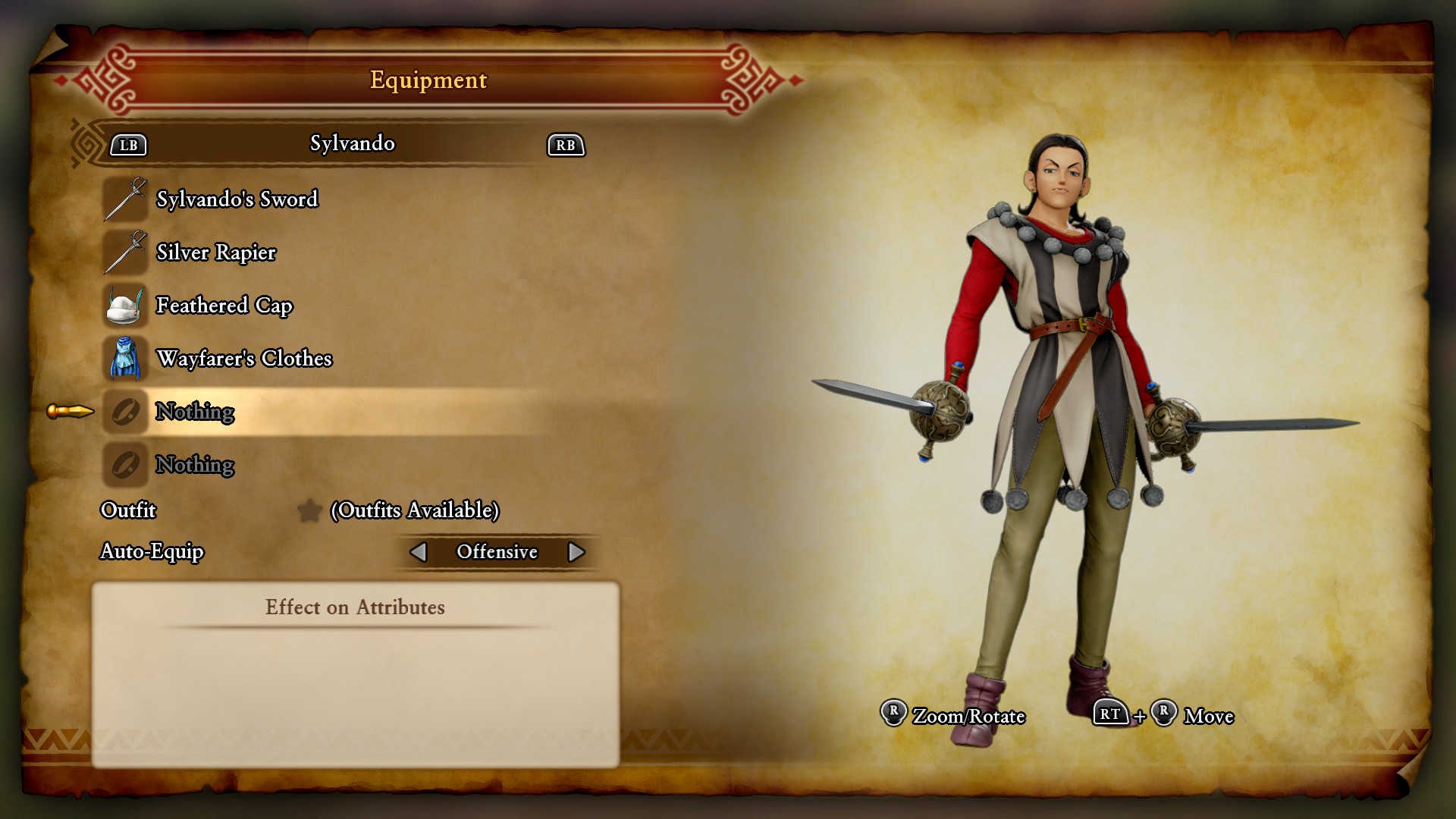
However! Give Sylv two knives, and suddenly his disposition turns quite sunny:
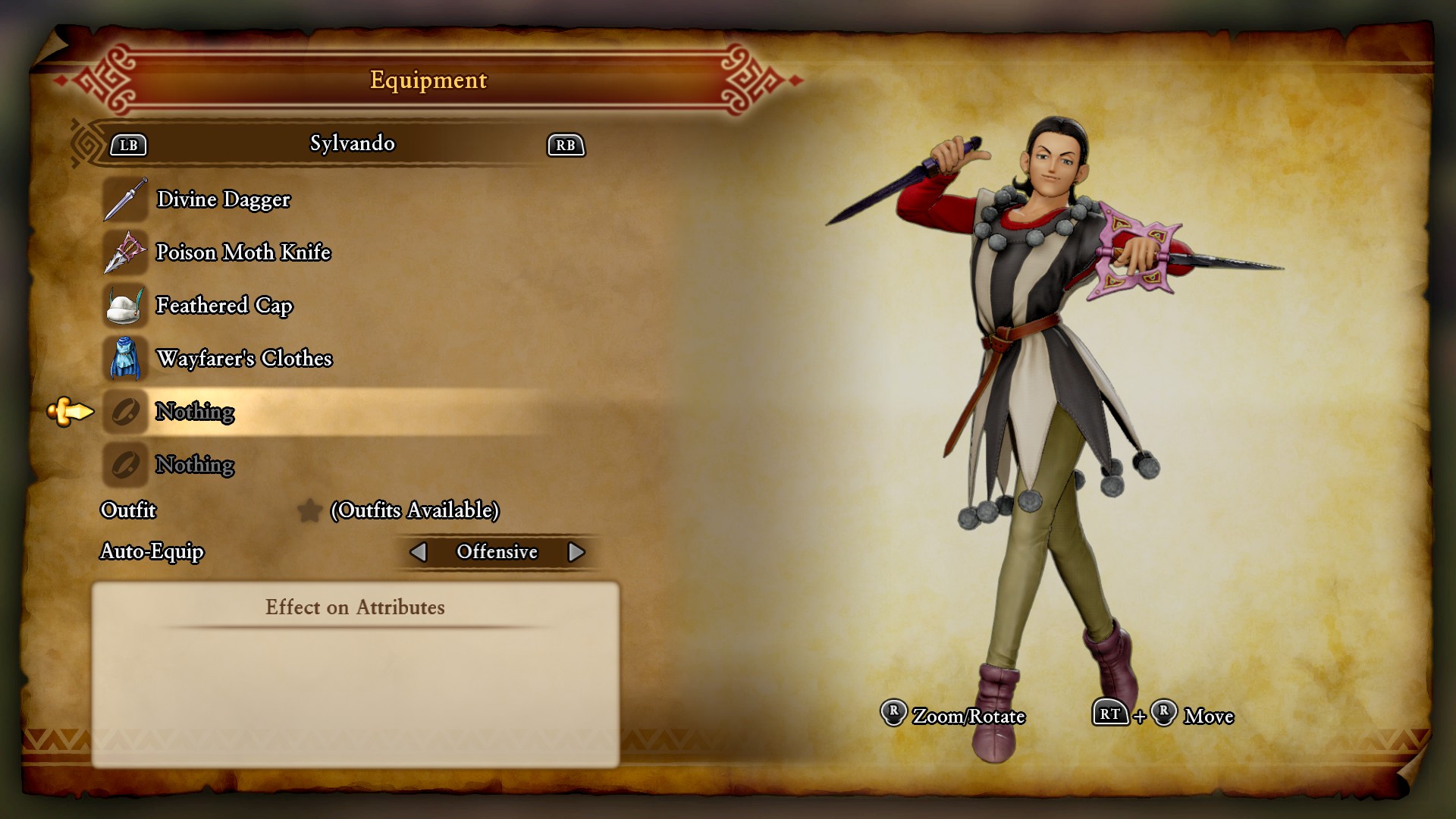
Of course, this ought to be expected—if you go back to the very first cutscene Sylvando appears in, putting on a performance at the circus, you'll get to witness his sharp knife-juggling skills:
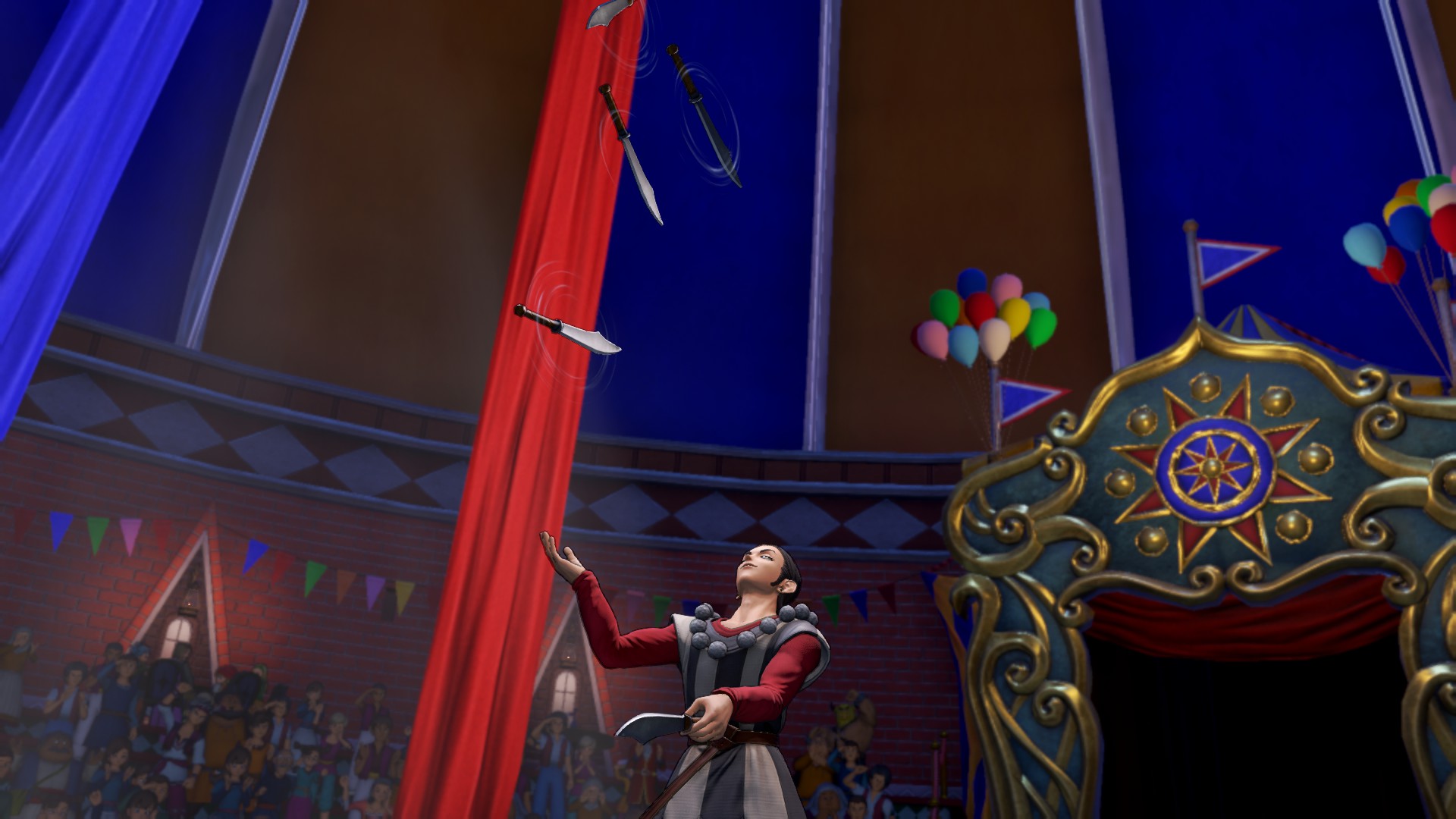
Sylvando also has a third weapon type he can equip: whips, which are a two-handed weapon in XI. This by itself is a quietly significant development, since whips have been a nigh-exclusive weapon for defined female characters in just about every game prior to XI, further highlighting how Sylvando's オカマ design is a break from tradition within the series, and possibly the mainstream Japanese media landscape by extension (though this remains to be seen, as AFAIK there hasn't been a central, visibly queer-coded character in a Dragon Quest game in the 7 years since).
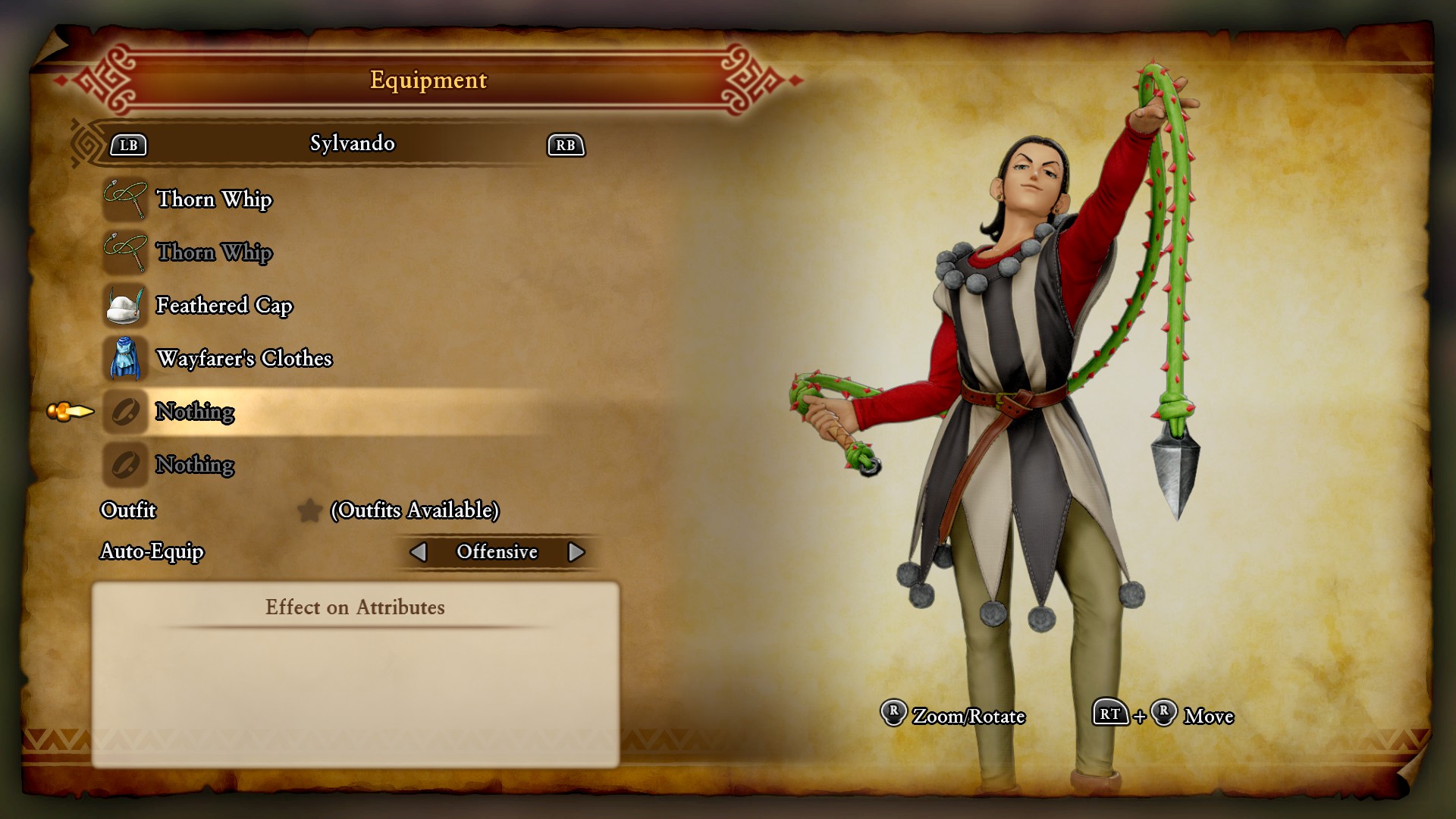
And as I've nodded towards before, you're much better off investing into whips, not only because of their status-inflicting utility, but because Sylvando is very much the worst sword user in the game. Sylvando gets a paltry +9 attack and 2% extra critical hit chance total, even with every single panel in his entire character builder unlocked, and has no unique skills that aren't shared by the three other swordies, of which the best modifier he has is 2x damage against a single enemy type. And indeed, Hendrik gets the same measly suite of stat bonuses from his sword skill tree—but these are backed up by his higher nautral strength stat and an arsenal of skills that can do more than double damage to any enemy from his Heroism tree, including an exclusive upgrade to Falcon Slash that is easily the coolest looking attack in the entire game.
Essentially, Sylv is the only character to get bespoke assets further hinting at aspects of his personality and/or how he should be used in this way, both which are used to reinforce his characterizaton. The only other party member whose facial expression changes from an idle stare based on their equipment is Erik, only when he's dual-wielding swords, and this has minimal narrative relevance. So, if you need any more of a reason to not use swords on Sylvando than his incredibly underwhelming usage of them, know that the developers are trying to convey that he doesn't necessarily like using them. That's some good game design!
~ intro ~ I ~ II ~ III ~ IV ~
~ return ~